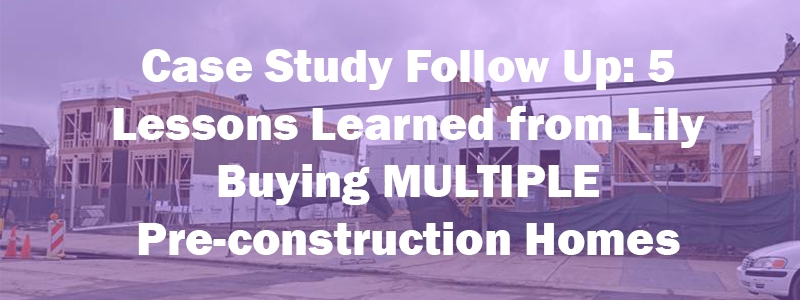This is a special week for our family.
We got to celebrate Fathers day with my father-in-law.
We got to welcome the family of Sharmein, who’s our kids’ nanny, to our house.
They arrived Tuesday evening.
Sharmein understandably was very excited. Her daughter was excited to reunite with her mom. We are all very happy for her. After all, she’s stayed in Canada, separated from her family for the last 4 years for the most part.

I remembered how difficult it was when we first arrived in Toronto. That was nearly 20 years ago.
We didn’t have much help. We didn’t have relatives living in Toronto at the time. All the help we got was paid rides from a retired couple who’re distant relatives of ours. We even paid for the rides to take them out for dinner.
I was extremely grateful when a family friend of my Hong Kong friend voluntarily came out with her minivan. She took us to register for our Social Insurance Number and tour around Pacific Mall. ?
To give you some perspective, I couldn’t understand CP24, the local news channel when watching TV. I could only point to the condiments that I liked when I ordered at Harveys because I didn’t know pickle was called Pickle. My family didn’t speak English at all.
We somehow managed to rent a condo, ordered furniture that didn’t arrive until a month later, slept on the dirty carpet with bedsheets my mom lugged over from Hong Kong, registered for high school, got a driver license and navigated the city through a TTC map on our own, with minimum English proficiency.
My dad’s only objective was to give us, my brother and I, a better future and a choice.
He was right, with the cost of family separation.
Our family has been separated, for the most part, since then. My dad stayed in Hong Kong to make a living. He couldn’t speak the language and he has a thriving contracting business back home. My mom and my brother had since returned to Hong Kong.
We were the lucky one, though it was never easy. We somehow managed, got settled down and I eventually picked up the language, enough to understand CP24. ?
The rest is history.
Considering all the heart-breaking family separation stories south of the border, a little more empathy goes a long way.
Now onto this week’s topic –
A while ago, I shared the story of Lily and how she was stressed out from buying pre-construction home in Milton.
She visited us a couple of days ago and appeared to be in more distress than before.
It turns out – that the story we had been hearing isn’t a complete picture of what happened.
On top of her Milton detached home, she also committed to buying a second pre-construction home. She was aware of the need to use a Conveyancing team in order to make sure everything was sorted in an astute and legal fashion.
She managed to sell her Milton home already, and her new pre-construction home will be closing in a few months.
She’s stressing out because her husband’s latest contract got postponed, her new house will cost much more than her existing home, and she can’t seem to sell her existing home or the second pre-construction home.
The same lessons we learned from her in our first blog post still applies.
-
Think about an exit strategy before buying
When I saw Lily yesterday, she was in complete distress. ? Because she fell and hurt her back, she had to bed rest for the last two months.
She could not help but get stressed out by the minute as no one puts any offers in her home or the new pre-construction home.
Her husband’s contract was also cut short. This means that they likely wouldn’t qualify for financing when the second home is ready.
She’s right to feel stressed, but having an exit strategy before committing to buy is the key.
If there’s anything we can learn from her case, it’s to plan.
-
It’s okay to rent out new house
Initially, when Lily told me her story, she said that she didn’t want to rent out the Milton house because it’s new.
Even if she rents out her current home, it’s unlikely she can qualify for financing at this point, unfortunately.
-
Make sure you have sufficient financing/back up plan
Perhaps this is the most critical point after all.
Selling your properties are sales. Sales require sales skills.
The market conditions also dictate sales. Mortgage rule changes play a key role in today’s market.
My investment philosophy has always been buying cash flowing properties that can cover its own mortgages and payments.
Buying pre-construction homes are great, and you can make a lot of money from resale even before closing. It’s just too much of a risk to commit my family does this. I think nowadays a more efficient way to make money is to build a house and sell it onto others, rather than buying another property some other company has built and selling it on. Customising and building a home is a way you get to design this yourself and can connect with buyers in a better way as you’re able to share your hard work and passion for the building, with them. Of course, building a home is a big job. It takes a lot of preparation before you even build the house, so be sure you have a lot of time to put into this build. One of the biggest things to consider is which construction company you’ll be using to help you build it. This will help homeowners to make sure they’ve got enough money for the build. Hopefully, you’ll have enough to work with a reputable construction company.
But flipping is more of a speculating business, the saying “it takes money to make more money” cannot be truer in Lily’s situation.
When she asked if I would buy her property, I told her no, unfortunately. We can’t qualify for a mortgage in a Burlington home. And the property will have no cash flow.
Her last chance is to be a lot more aggressive with pricing, even if it means losing money. ?
-
Recognize tax impact of each of your exit strategies
She has sold her Milton house, and she made very small amount from the sale.
But because she intended to sell it for a quick profit, coupled with the fact that she’s never rented it out and she owned the property for a few months, the profit that she made would have to be reported as income.
She would have to pay full tax on 100% of the profit.
In addition, she would no longer qualify for HST residential rebate. CRA may send her a letter asking for the HST rebate back.
This HST rebate can be added to the cost of building when computing the profit for income tax purpose.
At this point, she has listed her current residence and the second pre-construction home for sale.
If she sells her second pre-construction home BEFORE closing, the profit she made are subject to HST as well, if it is over $30,000.
Assignment fees are subject to HST.
Like her Milton home, she must report remaining assignment fees as income. She can deduct all eligible expenses, such as realtor commissions and lawyer fees, against the income.
-
Paying tax is a WONDERFUL thing
I can’t echo this more. At this point, we don’t even know if she will have any money left after this.
If she even must pay some taxes, it’s definitely a WONDERFUL thing for her.
Yes, investing in real estate does not always guarantee money. Timing the real estate market is tough. Learned from these five tips and hopefully, you won’t make the same mistake as Lily!
Until next time, happy Canadian Real Estate Investing.
Cherry Chan, CPA, CA
Your Real Estate Accountant






Adam
Thanks for this story and follow up. It seems like renting out the new house would have been the answer, but like you’re saying, you have to start early enough to get the credit for the income generated, and that’s hard to do when selling still seems like a viable option. Hopefully, the transition isn’t too painful for Lily. I hate when potential gains are cut into by unforeseen transition and holding costs.